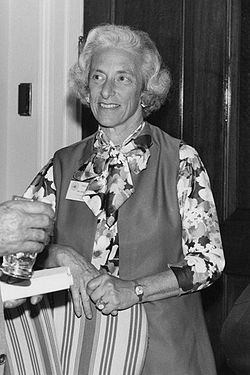Barbara W. Tuchman Quote
History was finite and contained within comprehensible limits. It began with the Creation and was scheduled to end in a not indefinitely remote future with the Second Coming, which was the hope of afflicted mankind, followed by the Day of Judgment. Within that span, man was not subject to social or moral progress because his goal was the next world, not betterment in this. In this world he was assigned to ceaseless struggle against himself in which he might attain individual progress and even victory, but collective betterment would only come in the final union with God.
Barbara W. Tuchman
History was finite and contained within comprehensible limits. It began with the Creation and was scheduled to end in a not indefinitely remote future with the Second Coming, which was the hope of afflicted mankind, followed by the Day of Judgment. Within that span, man was not subject to social or moral progress because his goal was the next world, not betterment in this. In this world he was assigned to ceaseless struggle against himself in which he might attain individual progress and even victory, but collective betterment would only come in the final union with God.
Related Quotes
About Barbara W. Tuchman
Barbara Wertheim Tuchman (; January 30, 1912 – February 6, 1989) was an American historian, journalist and author. She won the Pulitzer Prize twice, for The Guns of August (1962), a best-selling history of the prelude to and the first month of World War I, and Stilwell and the American Experience in China (1971), a biography of General Joseph Stilwell.
Tuchman focused on writing popular history.
Tuchman was a member of the Writers and Artists for Peace in the Middle East, a pro-Israel group. In 1984, she signed a letter protesting German arms sales to Saudi Arabia.
Tuchman focused on writing popular history.
Tuchman was a member of the Writers and Artists for Peace in the Middle East, a pro-Israel group. In 1984, she signed a letter protesting German arms sales to Saudi Arabia.
